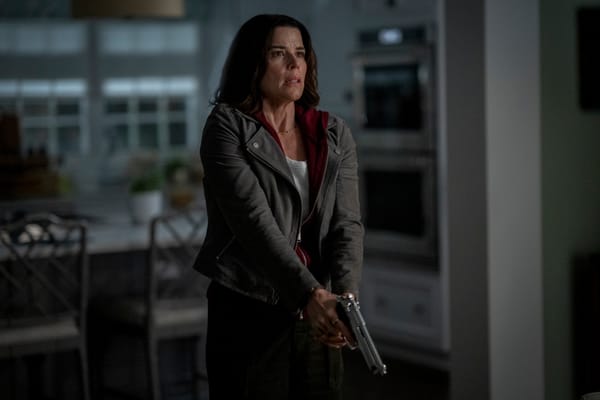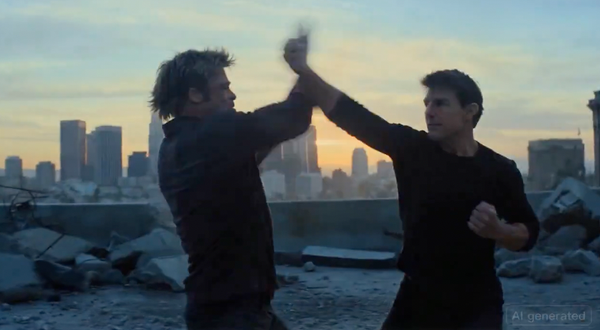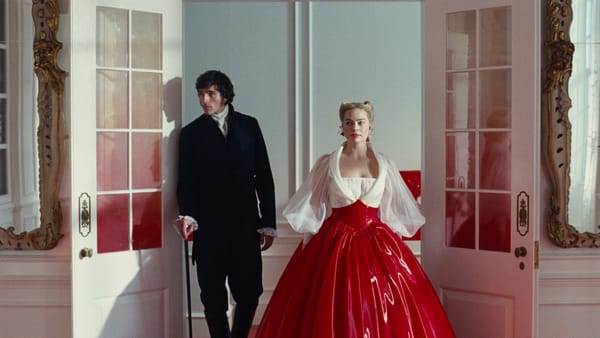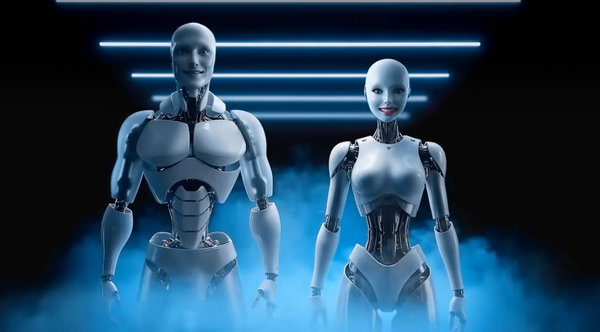Celine Song on How 'Past Lives' Reflects the Promises and Perils of Technology
Celine Song talks with Decoding Everything about making 'Past Lives'
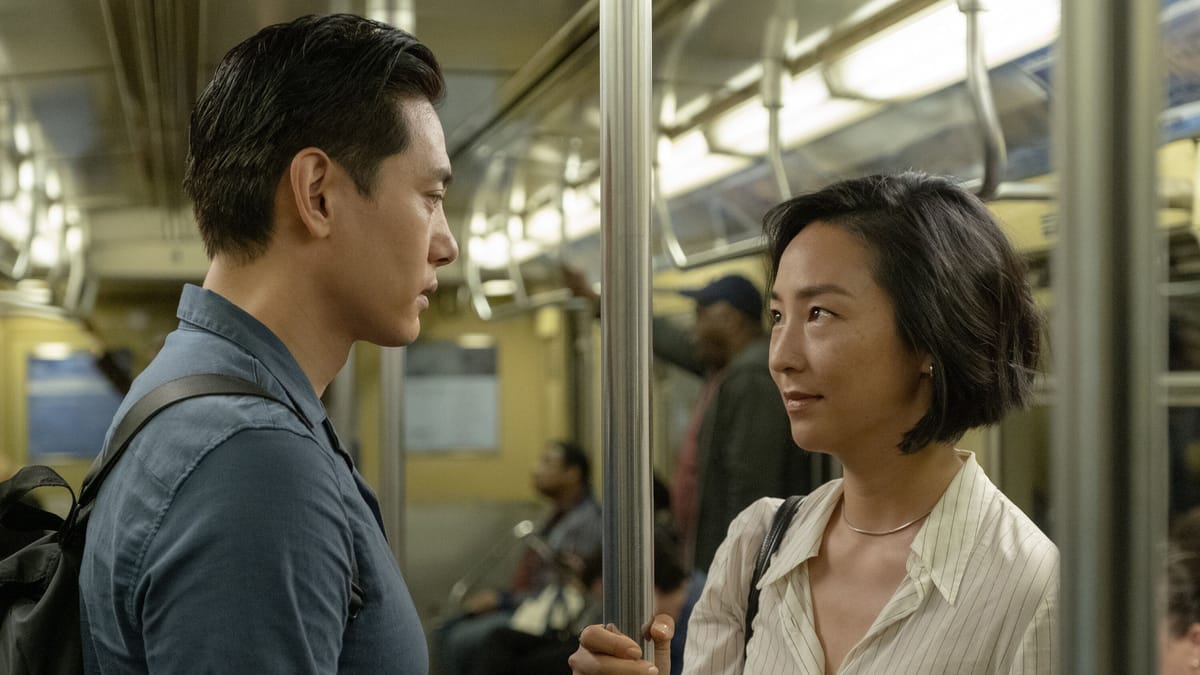
As I wrote in my review, Past Lives is one of my favorite films of the year. It’s beautifully shot and acted, and it’s one of those films that stays with you long after you’ve seen it.
I was lucky enough to chat with writer/director Celine Song when Past Lives opened the Seattle International Film Festival last month to a packed house. We discussed the inspiration behind the movie, why she decided to shoot Past Lives using film, how technology can be one of the most beautiful and frustrating things in a relationship, and why it’s difficult to rally your film crew when you’re just trying to shoot a guy in his room using Skype.
A transcript of our conversation follows. (Note: this transcript has been edited for length and clarity).
David Chen: Let's start by talking about what drove you to make this movie. Why this movie? Why now?
Celine Song: I found myself in a bar in East Village, sitting between my childhood sweetheart from Korea, who only speaks Korean, and my white American husband who only really speaks English. They wanted to get to know each other, so I was translating between them in the two languages that I speak and also the two cultures I speak. And then I, for some reason, felt like it was so amazing to be sort of sitting here and doing this. I think it's really just that moment and the feelings that I had while in this bar, really is what was initial impulse of making the film.
Being ESL or being somebody who speaks two languages, there is a bit of a chip on your shoulder or a little bit of insecurity about being bilingual and not having the native language be English. And so all of my life, I felt like it was a sign of my weakness and not a sign of strength. What I realized is actually there's an amazing amount of strength, and I felt very powerful doing that. Because not only do these two guys who have no reason to know each other, let alone try to get to know each other better, because of their connection to me and because of their love for me — very different kinds of love, but love for me — that they were really trying to make an effort to do this, and I got to sit in the middle of it. And all I had to do was exist as who I am. And that was enough for that really extraordinary event to happen.
I was looking around the bar, and I saw that the other patrons of the bar and people who serve the drinks at the bar were looking at us like, “Who the hell are these people?” to each other. Because we're such a strange trio. And what I felt at that moment was I was like, “Well, it's not so simple, but what if I took my time to tell you who we are to each other?” So to me, it's like, what if I could tell you the mystery of what it's like to be me? So I think that was the initial impulse for it. Of course, the actual film itself is not a direct... What is it?
It's not completely autobiographical.
It's not.
Because you use different names for the characters.
Yeah. And also you also are trying to tell the best story that you can. And you're also finding the characters as they are with the actors, who are amazing in their work. So we're not trying to replicate our real life. It's more like I wanted to express the truth of what it is like for somebody like Nora, who's the character of the film.
Yeah. That said, I read up a little bit on your background, and there do seem to be a lot of similarities between Nora and yourself. So, heavily inspired by your life, but-
Inspired by or adapted from or something like that.
Mm-hmm. So I wanted to ask you about some of the filmmaking choices you made. You said you shot on film, so I'm curious, is there a reason why you decided to shoot on 35-millimeter?
I mean, my joke would always be I had two divas on set. One was the New York City and the other was my 35-millimeter film camera. Because it is a tremendous amount of extra effort and work and also resources to be able to shoot on film. So of course, it was not a light decision, it was a pretty deep conversation that I was having. And it really started with my DP, Shabier Kirchner's conversation with me about how he loves working on film, and he thought that maybe it would be the right process for this movie.
The thing that really struck me about it mainly is that working in film or the film as a material is really connected to the ideology or the philosophy of the movie, which I think is the most important thing. I don't think that it's for every project, but I think for this project, because it is about time and the tangibility of time and intangibility of time and things that are forever and the things that are not forever. That's really what made me believe that it should be shot on film. It was ideologically and philosophically connected to the movie.
Wow. Fascinating. And I think from what I understand, shooting on film often creates an urgency on set that is not there when you're shooting digital. Because when you're shooting, it's like, that's money going through the canister.
Exactly. I think that the actors show up differently. I think the crews show up differently. There is a bit of an extra level of tension that I think is not only good, but it's also what's helpful to me as somebody who's come from theater. Because in theater, the process of working in film I learned is actually a lot closer to a working in theater where you only get one shot every night to get it. So there is some sense of it where it's like the process itself really spoke to what I actually am pretty comfortable with in that way.
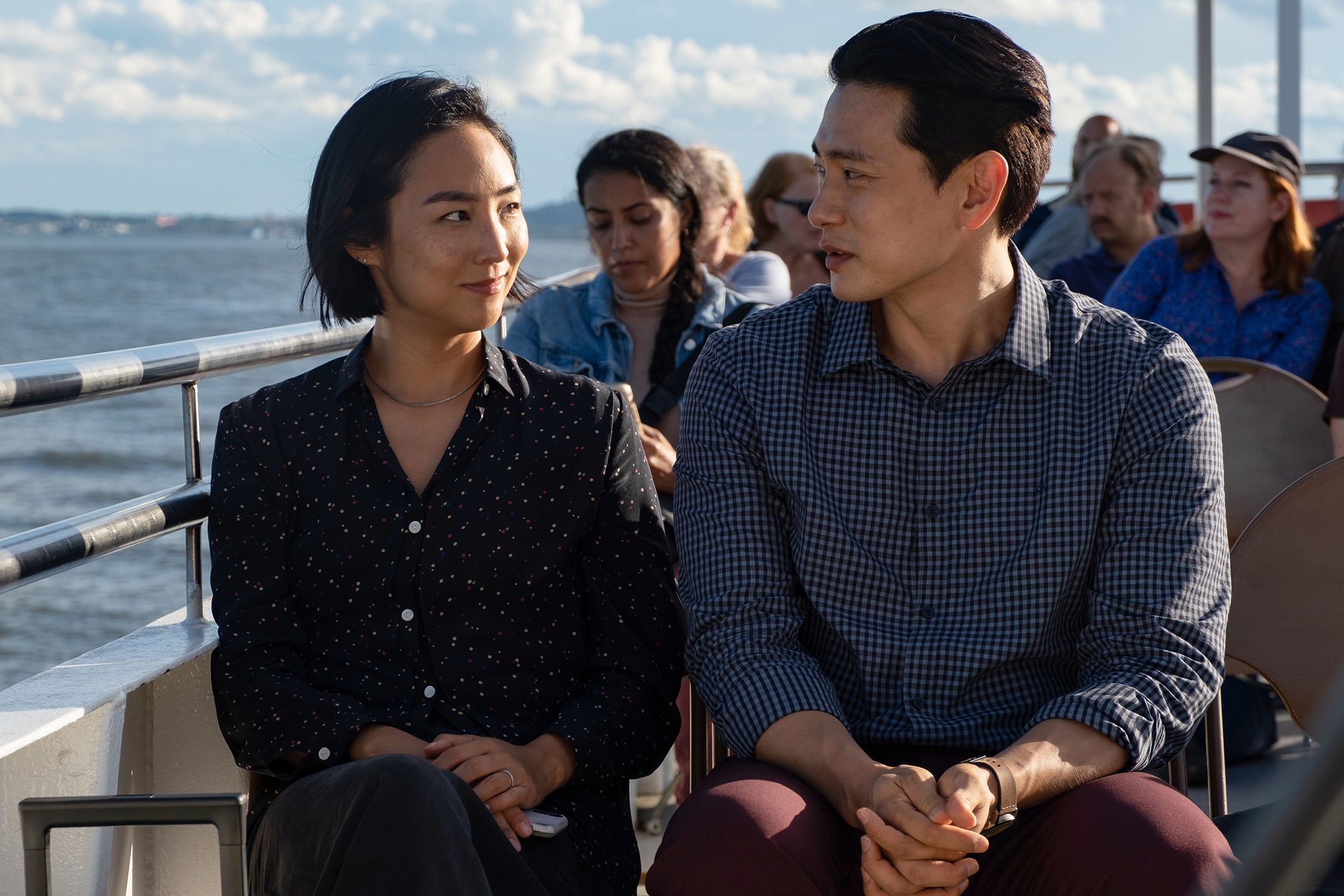
I notice a lot of the movie is conversations between people, and I noticed there's very little shot-reverse shot. A typical movie, you see a shot of the person you're talking to, you see a shot of the person talking, and back and forth, back and forth. You decide to shoot most of the scenes of conversation with a single shot where you can see both characters, or you pan back and forth. This makes the scenes play out more in real time, but it also removes some options when it comes to editing. I'm curious why you decided to shoot the movie like that.
Well, I think that the hope is that the performers, the actors are so connected to the scene and they already walk on set after having worked with me, knowing how to play the scene, so they can control the rhythm of the scene. […] And the reason why I prefer to do it that way is because my goal is always for the audience to forget that there's a camera there or there's a bit of a immersiveness or a kind of deep connectedness. And sometimes if there are so many cuts, then you might actually have a stronger sense of, “Okay, there is editing happening.”
If you are staying in a scene without a movement from the camera, sometimes what you're able to do is you can have the audience slip into that scene so that they're no longer thinking about it as a movie that they're watching, but they're actually feeling more connected to the conversation, and they can really focus on that. If the actors can support that process — and my actors could, because they're great actors — that was always the way that I wanted to make the movie.
I'm curious how much of the pandemic fed into [the making of] the film?
Because a process of making a movie takes so long, I hadn't experienced the pandemic when I had already conceived it, and I knew that I was going to make it. The plan was to actually make it in 2020 summer. So it really wasn't like something that affected me in that way, except for, of course, shooting in the pandemic was a... For your first film, it's like, I don't really know what it's like to not shoot in the pandemic.
You don't know what shooting in normal circumstances are!
No, I don't know that. Yeah. So, to me, I'm like there's some practical ways that it affected, but I think the hope is that as an artist, you are always going to be reflecting truth before the rest of the world is connected to it. So, to me, whatever feels really connected or relevant about the movie is something that came from a task that I take very seriously, which is, I'll tell the truth about what it's like to be a person at any given moment.
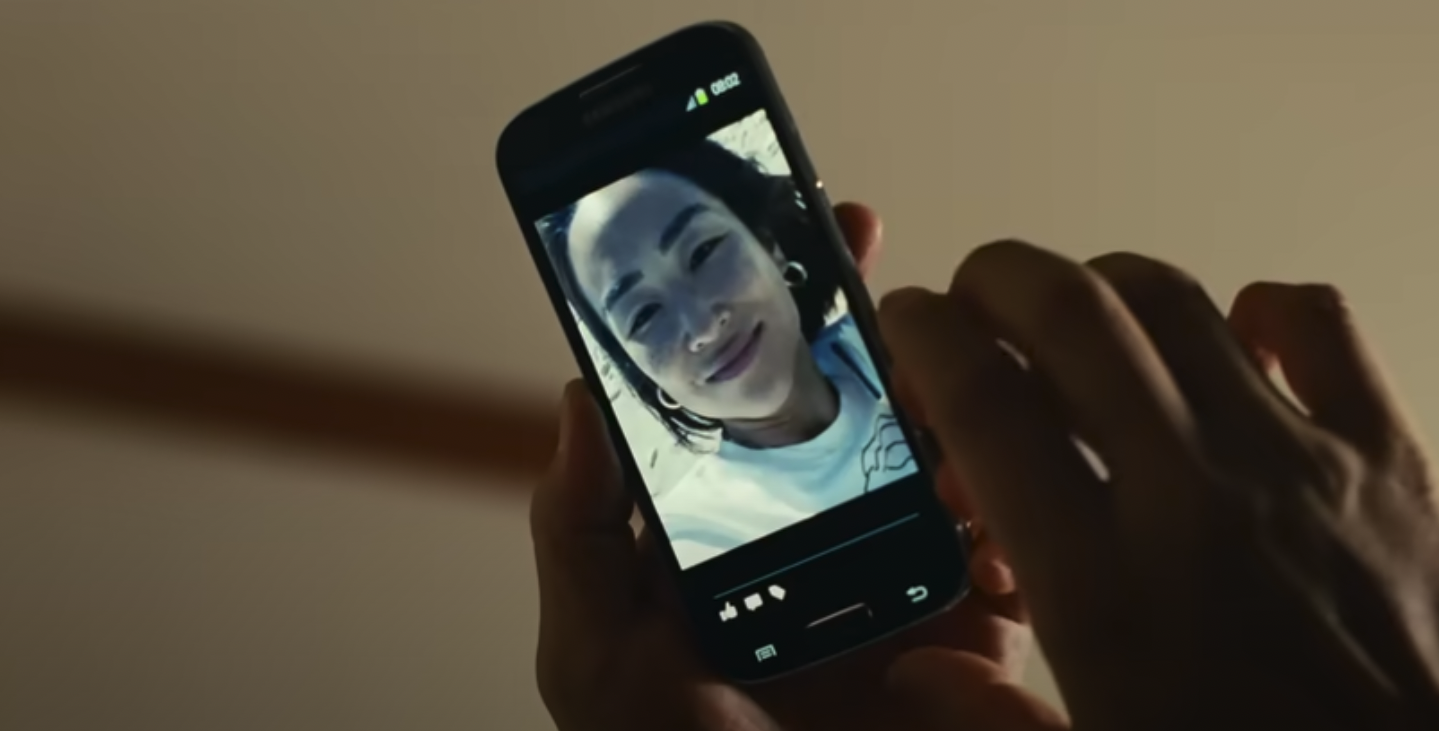
[DChen’s Note: A significant part of the film takes place with the two leads connecting with each other over Skype. In the following passage, Celine discusses how she conceived and executed some of those scenes.]
Celine Song: The sequence over Skype, for example, I know that in pandemic, that was a very big part of our lives. That was also true back in the 2010s when this moment is set, where technology is both a complete miracle, and also it is something that can really be frustrating and very hard to wield as well, and it can actually get in the way sometimes too. that has always been the truth, even back in the 2010s, even back in the 1900s. So, to me, if I am really truthful about that, if I'm really connected to that and I'm depicting that accurately, then I feel like then that's just how people are going to see it.
But when we were shooting the Skype section, something that I did was we built two sets. […] I wanted to practically build two sets and we connected both sets with a cable that we put a throttle on. We had to throttle and to make the connection shitty. I know we're talking about how to make video clean all the time, but we want this to be shitty, because that's what it was like in the 2010s. Skype was horrible.
Well, it depends on if you had a bad connection.
Of course. But-
If you had an international connection-
Exactly. Korea and New York. Because it does have to in some way cross the ocean in some way. So I was like, “It can't be that great.” So we had a throttle on, and I was sitting by with the board kind of this, controlling how much bad connection is there for it. And the actors were asked to react live to it because they were just trying to do their scenes. And I was there making the connection bad or making it freeze, something like that. So, to me, it's getting to the truths of that is going to always be relevant. The truth is always going to be relevant.
It seems like you wanted to show the benefits and also the struggles of technology.
Of course. Well, the thing is, when you first connect, there's a part of it where it's like a little bit sci-fi, right? It's what people dreamed of being able to do, which is to have a conversation while looking into the person's face. And I think there was a time where that was only a fantasy and only a sci-fi thing. But then over time, because of technology, we're able to do it. And Skype was one of the first moments where we were able to do it. So it is a miraculous thing.
You're just so happy that you're able to reconnect with a friend who is a continent away, an ocean away, and also is in a different time zone, and you're able to see that person's face. So initially, I think the feeling that Hae Sung and Nora have when they reconnect is nothing but joy and feelings of miraculousness and feeling a little bit like, wow, future is here, or sci-fi is here.
And then I think over time, just like any relationship, the expectations that you have for the intimacy grows, and you start to really connect to it, and you really start to hope that you can feel a little bit closer and a little bit closer. As they get closer, they want to get even closer. And I think because of that, suddenly, the miraculous thing that technology was able to offer feels like it's not enough. And then the frustration starts to build, and a bit of resentment that feels like, is the resentment about Skype? Is the resentment about this person being so far away? And I think over time, I think they feel disconnected in that way.
Something that I found in the edit, which I thought was really interesting in putting together the sequence in Skype, is that when you see... You would think that shooting the actual person would be less lonely than shooting the screen in the film. And what I learned in the edit is that when we shoot the screen and we see the other character's face [on the screen], that's when we feel the most connected, actually, emotionally. So many of the shots are about actually shooting the person alone in the room, in the room that they're in, and we can barely see the screen. And we realized that that actually looks a lot lonelier than the shots where we're staring at the screen kind of thing.
You had thought that showing just the screen with the person's face pixely would feel very alienating. But in fact, it's much more alienating when you just see the person in the room looking at the screen.
Exactly. Because then that's just a reminder amazingly of how, yes, of course you guys are connected by the screen, but at the end of the day, you're here alone in this room. And that, to me, was a really amazing revelation. Wow, actually, I think the performance in the screen is actually a way to make these characters feel like they're really connected.
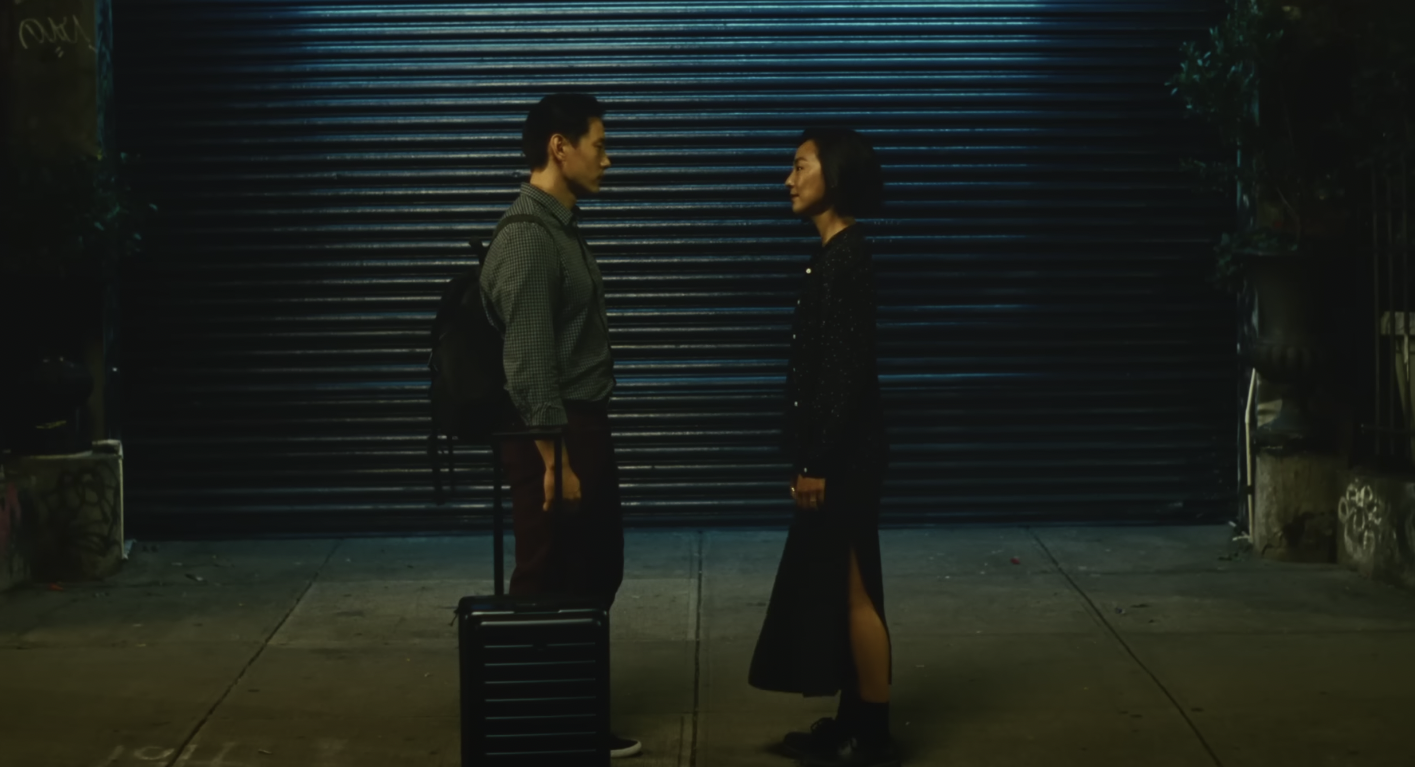
[DChen’s Note: This passage makes some oblique references to the final scenes of the film. I’ve removed explicit spoilers but please be careful if you care about that sort of thing.]
What was the most difficult scene to write, and what was the most difficult scene to film?
That's a really good question. Let me think. What was the most difficult? You know what's funny? The most difficult things are not the things that the movie seems to be about. Because it's really the scenes where you're just shooting the Skype screen…
Right. [When I interviewed] the Daniels, and they were saying the most difficult scene in Everything Everywhere All at Once was when Michelle Yeoh and Ke Huy Quan are in the van together.
Yeah. Right.
Because they shot it at two different times, and Michelle Yeoh was in another country and it was like 3:00 AM and it was... But it's like that's not what you would think would be the most-
It's not what you think. It never is.
So I expect it would be something random as well.
We all know that it's going to be difficult. The final scene of the film was of course, the most difficult in many ways because we're laying 150 feet track in the middle of East Village on a Friday night, where just outside of where the camera's pointing is a lot of drunk people, yelling, asking what we're shooting. The whole film lives and dies on it. That's what I said to my crew when we were looking for the place, I was like, “I'm going to die on this hill. If this scene dies, the movie dies.” So something like that.
But because the stakes are so high and the miracles that have to happen are so difficult to imagine working out... We had to clear every single building in that street because we need to be able to shoot it. And some of them, we had to ask for permission to change the lights because we just needed to be able to change the lighting. We had NYPD cars on either side of the street. We were trying to block off the street from drunk people from interrupting the scene. So it was just this amazing, miraculous thing that we were able to do. But I wouldn't say that that was the most difficult thing because that, everybody knew in the onset what we were doing and what we were up to.
The things that were harder were like when I went to Korea. My Korean crew hasn't seen all the big scenes that we shot, so they don't know if the movie's any good. They don't know if the movie has anything good in it, because so much of the really fundamental blocks of the film are happening in New York. But what's the most difficult is to not only adapt to the new filmmaking culture beyond language and culture, it's filmmaking culture that you're adapting to, but I'm also explaining, yeah, we're just shooting that guy on his laptop, but I promise you it's going to fit into the film in a great way.
“This is going to be the most powerful scene in the movie! It's a guy on a laptop, but it's going to be incredible.”
But it's going to be a big part of the movie! To me, those are the things that are actually harder, because it is not something that I can really rally the troops to really believe in. It's a little harder to rally the troops believe in it. Compared to the final scene [where] everybody on my set was hyper-focused on getting this right.
The more technically difficult, the easier it is to rally the troops, but if it's just a guy with a laptop in a room…
Technically difficult, but also emotionally difficult. Because if the emotional stakes are high, everybody on set can feel it. So there is a sense of like, no, we are all here to make this movie. We know this scene is important. What's hard is we have all this beautiful setup, and then I'm like, “Action!” and then we are just shooting guy in front of a laptop or guy looking at a phone, right?
And I think, to me, I think weirdly... Or like the scene in the grad school classroom. It's just hard to keep the faith alive in that way. So, to me, those are more difficult, honestly, than even the most technically difficult things.
Past Lives is out in limited release and expanding wider to more theaters this weekend.
Thank you for reading this post! If you enjoyed it, please consider sharing it.
Other Stuff David Chen Has Made Recently
- I’ve seen Indiana Jones and the Dial of Destiny and I had some pretty mixed thoughs about it. You can watch my video review below (no spoilers, of course) and subscribe to my YouTube for more.
- On The Filmcast: After Dark, we discussed the most unrealistic thing about Fast X.
- On Decoding TV, Roxana and I continue our coverage of Black Mirror season 6 by discussing the third, most ambitious episode, “Beyond the Sea.”
- Also on Decoding TV, Patrick Klepek and I will be covering Secret Invasion. We’ll be releasing a new recap every two episodes. Here are our thoughts on what you need to know before you watch the MCU’s latest. Also: we’ll be covering The Bear on Decoding TV next week so be sure to subscribe to hear our conversation.
